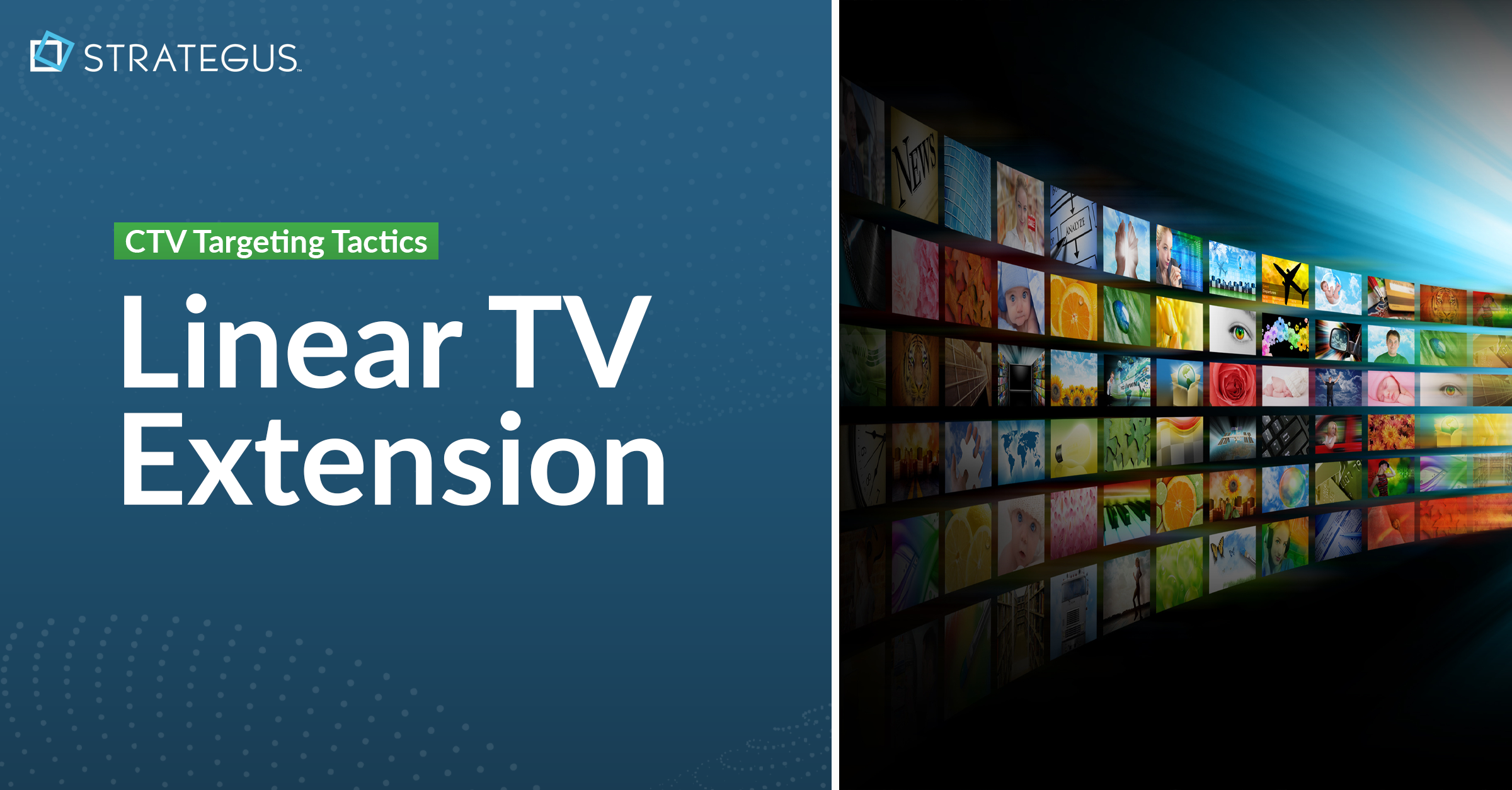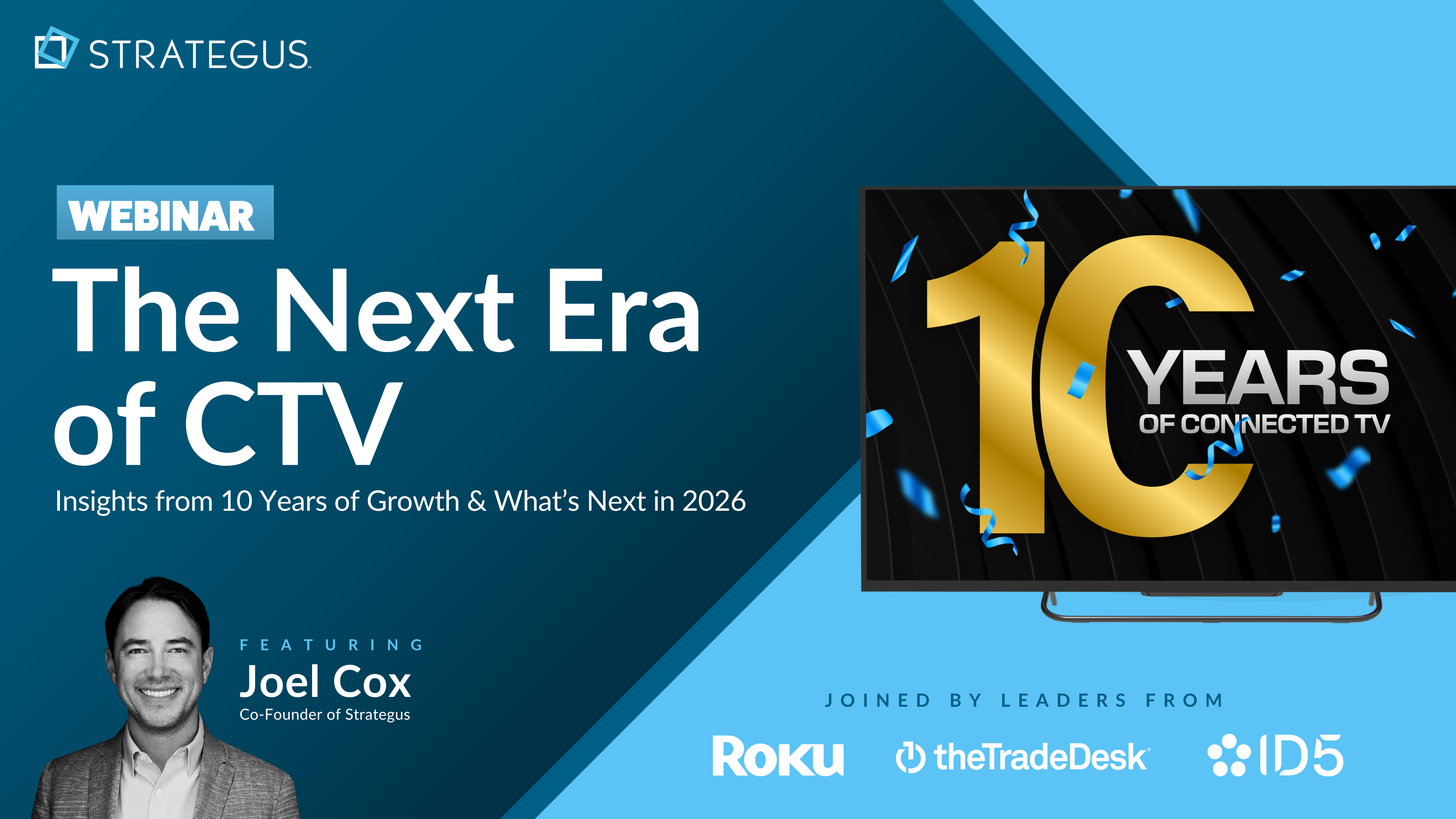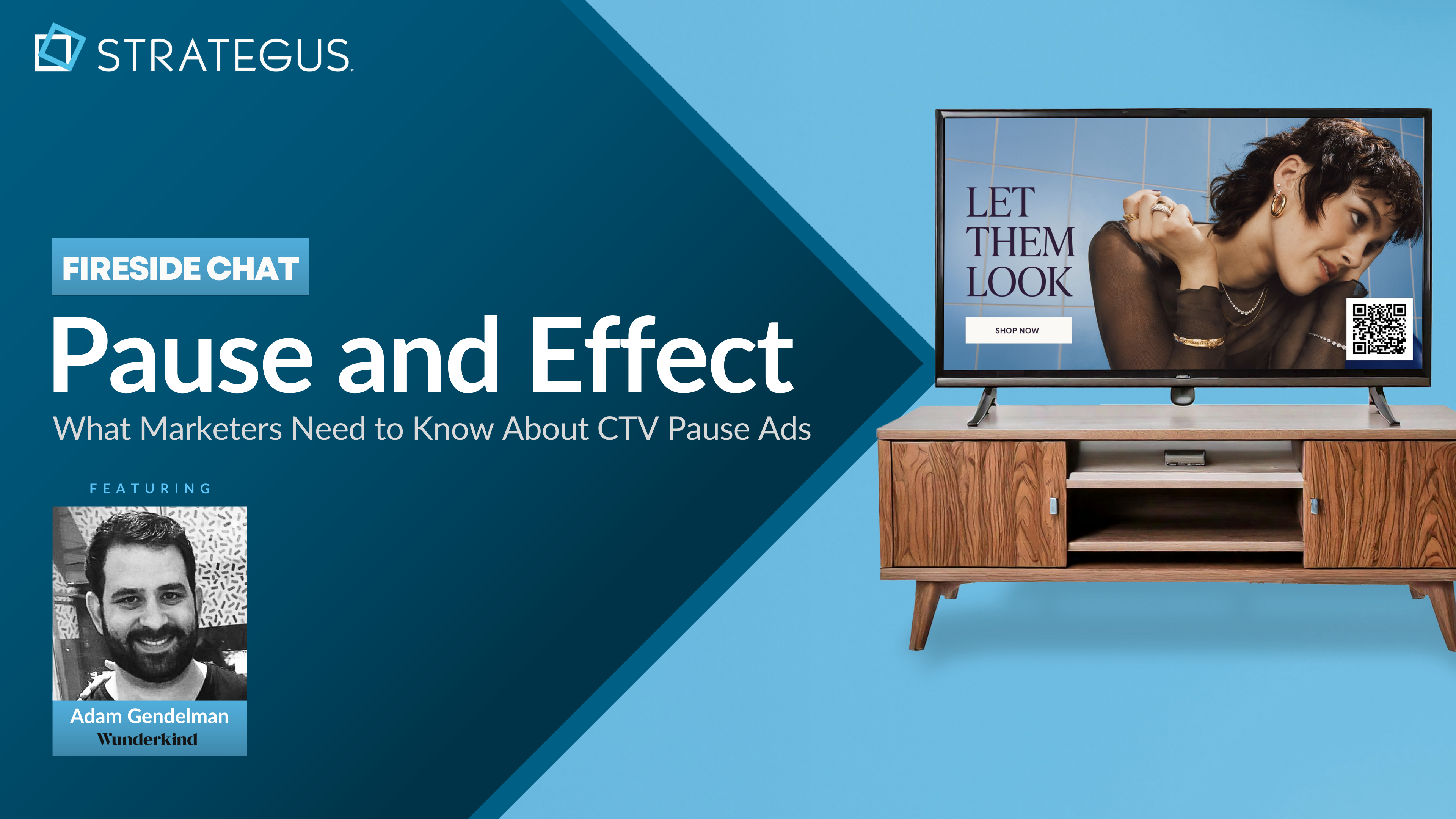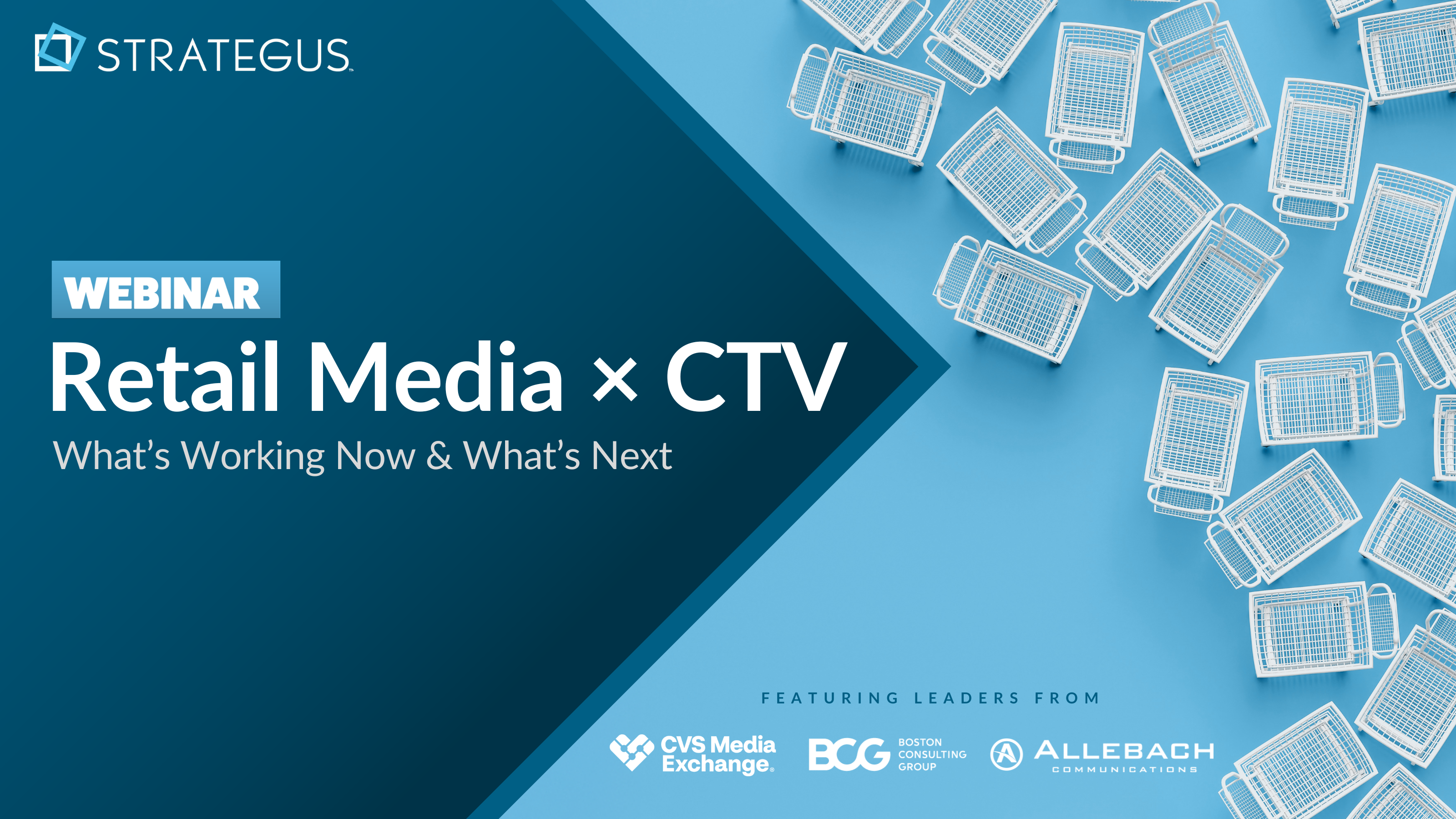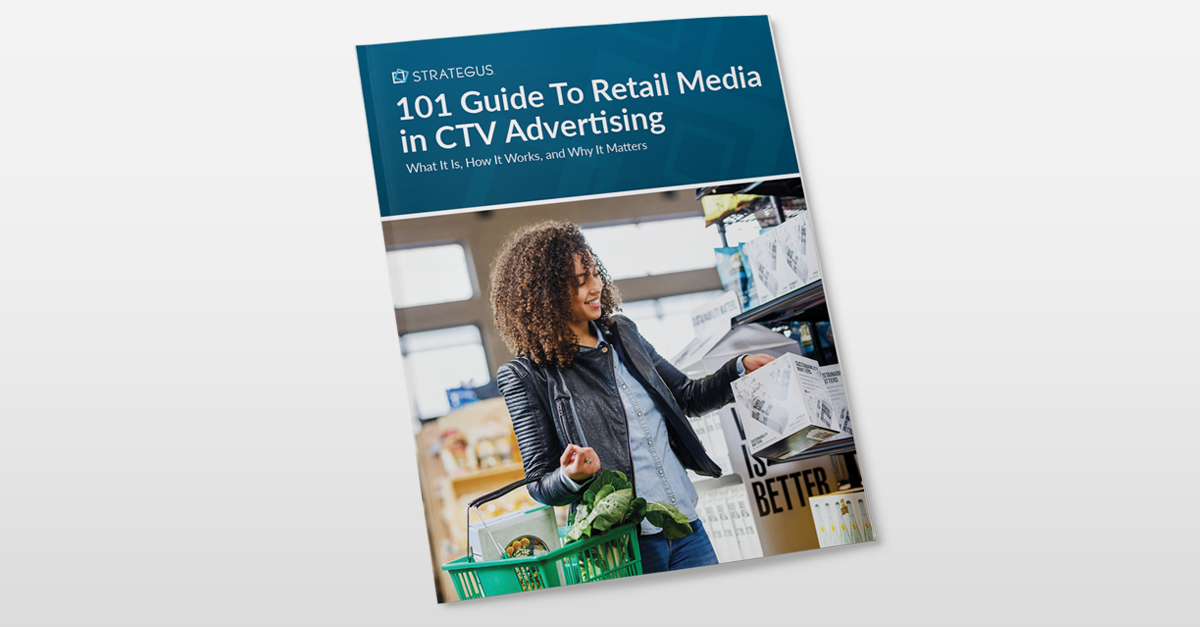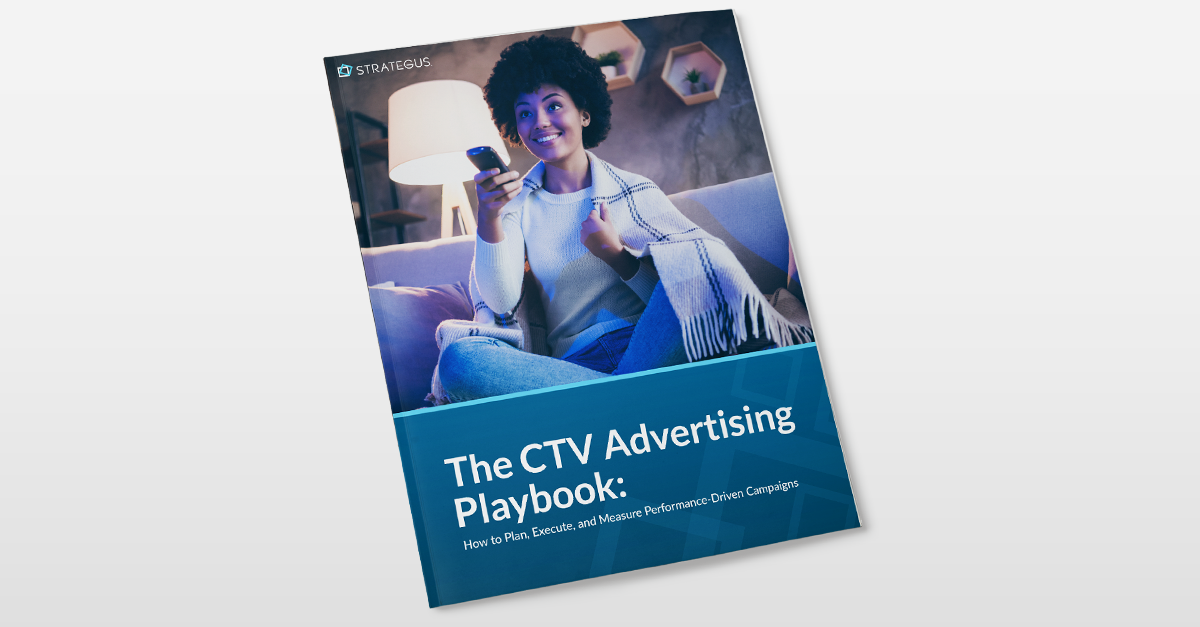- Home
- Strategus Blog
- Connected TV Viewership & Stats Every Advertiser Must Know in 2025
Connected TV Viewership & Stats Every Advertiser Must Know in 2025
 Traci Ruether
Traci Ruether
12 minutes read

Connected TV (CTV) is the fastest-growing ad channel, offering TV-level impact with digital precision. Viewers prefer it. Platforms support it. But ad budgets haven’t fully caught up.
As Paul Verna of eMarketer says: “CTV is catching up with linear TV, but [an inflection] is not likely to happen until probably toward the end of this decade”
That means less competition, more available inventory, and bigger opportunities for early movers.
We’ve rounded up the most important CTV stats and charts to help you make the case, for your budget, your team, or your clients.
1. CTV Households Outnumber Pay TV Households
Years ago, eMarketer predicted that CTV viewership would eclipse pay TV by 2023, and that has come to fruition.
Less than 50% of U.S. households now subscribe to traditional TV services. Meanwhile, 87% of U.S. households have a connected TV device.
This significant reach makes CTV a vital part of every marketers media mix. And because CTV advertising is more targeted, affordable, and trackable than traditional TV advertising, it’s a no-brainer.
2. Viewers Prefer the Economics of Ad-Supported Streaming
CTV ad inventory expands each day as the streaming industry offers more ad-supported options. Examples include hybrid video-on-demand (HVOD) platforms like Netflix’s “standard with ads” plan, virtual multichannel program video distributors (vMPVDs) like YouTube TV, and free ad-supported streaming TV (FAST) services like the Roku Channel.
But streaming platforms aren’t the only ones making this shift. Viewers are also trading in their expensive subscription plans for ad-supported alternatives. This is why subscription-only services battle with churn: most new users cancel their subscriptions after watching a specific series or must-watch event.
According to LG Ad Solutions, 69% of CTV viewers prefer FAST channels over subscription-only services.
3. CTV Ads Drive Better Engagement
Passive TV advertising is no longer the only route. With CTV, we’ve entered a new era of interactive and engaging ad experiences that capture viewers' attention and drive results.
Unlike traditional TV commercials that simply "talk at" viewers, CTV ads can be personalized, dynamic, and even gamified, creating a more memorable and impactful experience.
According to Sharethrough, interactive CTV ads drive a 52% lift in attention. This means viewers are significantly more likely to remember ads that include interactive elements.
But what exactly goes into making CTV ads engaging? Here are a few tactics advertisers are experimenting with:
- Personalized content: CTV ads can be tailored to individual viewers based on their demographics, interests, and viewing habits by including overlays with relevant information. This ensures that the ads resonate with the audience, leading to higher engagement and recall.
- Dynamic formats: CTV ads can incorporate dynamic elements like QR codes, countdowns, and clickable buttons that let viewers interact using their remote. These formats create a more immersive experience.
- Gamification: CTV ads can include game-like elements such as quizzes, polls, and mini-games that encourage viewers to participate and interact with the brand. This not only boosts engagement but also increases brand recall.
Check out our Guide to Interactive CTV Formats to learn more.
4. Live Sports Streaming Has Taken Over
For decades, sports broadcasting was legacy media’s last line of defense. Licensing agreements, consumer viewing habits, and technical challenges slowed the adoption of live sports streaming.
But in 2024, this all changed.
Every major streaming platform has entered the space — including tech giants like Amazon Prime Video, linear streaming TV services like Disney-owned Hulu + Live TV and Fubo, and free ad-supported streaming TV (FAST) channels like Roku.
Netflix has also finally made moves to prioritize this type of content, and immediately made history. The Jake Paul vs. Mike Tyson Fight was the largest live-streaming sports event to date with 65 million concurrent streams.
While the streaming wars of the early 2020s were all about original content, the streaming wars of 2025 will focus on live sports streaming. The current leader is YouTube TV, but Hulu Live TV + Fubo will follow close behind once the merger is rolled out.
Need some other stats about live sports streaming? No problem.
- 105.3 million US live sports viewers tune into live sports content digitally, compared to 85.7 million tuning in on traditional pay TV (EMARKETER)
- 35% of consumers streamed live sporting events more in 2024 than they did just six months prior (Samsung Ads)
- 40% of advertisers plan to increase spending on live sports on CTV (The Trade Desk)
5. Streaming Viewers Span Every Demographic
There’s a myth that connected TV (CTV) advertising is best for targeting young cohorts, which causes certain brands to shy away from the medium. The data tells a different story though.
According to EMARKETER, CTV usage is high for all viewers in the 12-65 range.
The most active customer segments on CTV include:
- 83.4% of U.S. adults aged 25-34
- 86.1% of U.S. adults aged 34-44
- 85.2% U.S. adults aged 45-54
But even in the 65+ range, almost half of U.S. adults use CTV every month. This is all to say that CTV is a great channel for reaching viewers of all ages. And advertisers who aren’t investing in it are missing out on a huge percentage of their target audience.
6. CTV Is Becoming a Performance Channel
According to the IAB’s annual Digital Video Ad Spend & Strategy Report, ‘business outcomes’ — such as sales, store visits, and leads — are the top KPI for determining CTV success. A whopping 54% of advertisers cite these quantifiable results as the primary KPI used in CTV campaigns.
Despite this, CTV continues to be perceived as a top-of-funnel awareness channel.
But this is slowly changing, with 49% of advertisers using CTV to achieve lower-funnel objectives according to the Trade Desk.
Cue in performance TV advertising. Performance TV is a new approach to TV advertising that uses the targeting, measurement, and attribution capabilities of programmatic ad placement to achieve measurable business results. These campaigns often go beyond generic awareness plays by incorporating direct-response tactics that motivate viewers to take action.
At Strategus, we use a unique playbook that combines big-screen brand exposure with cross-device retargeting to drive these business results. We’ve seen a 200% increase in conversions when using this approach as compared to only running CTV ads — but it only works with robust targeting, retargeting, measurement and attribution tools.
7. Advertisers Increasingly Value the Price Advantage of Programmatic CTV
TV advertising used to only be an option for big brands with even bigger budgets. With CTV, though, that’s all changed.
Why does programmatic ad placement equate to better pricing? Because advertisers can target specific ads to specific households, they’re able to eliminate the wasteful spray-and-pray approach of traditional TV advertising.
The benefits of programmatic CTV are threefold.
- By only paying for ads that reach specific viewers, marketers can eliminate wasteful ad impressions served to the wrong viewers — all while boosting performance with more relevant experiences.
- Advertisers can deliver much more relevant campaigns by customizing ads based on who sees them and where they’re at in the buyer’s journey.
- Ongoing optimization based on real-time data allows advertisers to continuously fine-tune their campaigns to improve ROAS.
“When we asked survey respondents about their priorities when constructing CTV campaigns, almost half (47%) ranked its ability to reach their target audience as No. 1. And while CTV has occasionally suffered from the perception that CPMs are expensive relative to other media, a fast-growing cohort now recognizes its value. Our research found a 58% year-over-year increase in advertisers who report “better pricing” as one of the main benefits of buying CTV programmatically."
8. Advertisers Are Investing in CTV to Combat Signal Loss
Due to privacy legislation, the phase-out of third-party cookies, and ongoing scrutiny from regulatory bodies, advertisers are facing signal loss. This is reducing the ability of brands to access the data required for targeting and measurement.
The Interactive Advertising Bureau (IAB) explains:
“95% of data and advertising decision-makers at U.S. brands, agencies, and publishers expect continued legislation and signal loss in 2024 and beyond. Two-thirds foresee further rollout of additional state privacy laws which they know will decrease their ability to personalize messaging to consumers in those states.”
Luckily, CTV has been cookieless for some time, making it less at risk of signal loss. It’s for this reason that the IAB's 2024 State of Data report shows that ad buyers are increasing CTV spend as a direct response to these obstacles.
Learn more about the state of data in CTV advertising →
9. Retail Data Is the Next Big Thing in CTV
Retail data, or the customer information collected by major commerce brands like Walmart, Kroger, and Amazon, has been a trend in programmatic for some time. And it’s now gaining major traction in the world of CTV.
10. CTV Ad Spend Is Projected to Grow Rapidly
CTV isn’t a passing fad, it's the future of television advertising. And the industry is growing at an incredible pace.
By 2027, CTV ad expenditure is expected to surpass $40 billion in the U.S., representing a 200% increase in five years.
Now is the time for brands and agencies to capitalize on this rapidly expanding market. By embracing CTV advertising and leveraging its unique capabilities, you can reach your target audience in a more effective, engaging, and measurable way.
Don't get left behind. Contact our experts at Strategus today to learn how we can help you navigate the exciting world of CTV and achieve your marketing goals.
Ready to Activate Smarter CTV Campaigns?
At Strategus, we help agencies and brands turn CTV into a performance-driven powerhouse. If you're ready to stop wasting impressions and start seeing measurable results, let's talk.
Partner with Strategus to:
- Reach real viewers on premium, non-skippable inventory across 200+ apps
- Retarget across devices for up to 200% more conversions
- Leverage cookieless targeting and first-party data integrations
- Access closed-loop attribution to tie ad exposure to actual outcomes
- Optimize campaigns in real time with our full-service team
Let’s make your CTV strategy future-proof.
Frequently Asked Questions
How Much Does It Cost to Advertise on CTV?
CTV ad costs vary based on targeting, inventory, and platform. CPMs typically range from $20 to $40, but premium inventory or narrow targeting can push costs higher. Advertisers should factor in creative production, data fees, and attribution tools when budgeting for a full CTV campaign.
What Makes a Good TV Ad?
A good TV ad grabs attention quickly, tells a clear story, and ends with a strong call-to-action. It uses strong visuals, sound, and emotion to connect with viewers. The best ads also match their message to the audience and align with the platform's tone and content.
How Are Mobile CTV Ads More Impactful for Advertisers?
Mobile CTV ads increase impact by combining large-screen storytelling with real-time, second-screen engagement. Advertisers can retarget viewers across devices and extend their message beyond the living room. This cross-device presence improves recall, drives action faster, and creates more personalized ad experiences for each viewer.
What Is CTV Experience?
The CTV experience refers to how viewers engage with streaming content on internet-connected TVs. It includes ad quality, platform navigation, content delivery, and interactivity. Advertisers enhance this experience by using high-quality creative, precise targeting, and seamless ad insertion that doesn't interrupt the viewer's content flow.
What Streaming Trend Should YouTube Advertisers Be Most Aware Of?
YouTube advertisers should watch the shift toward YouTube viewing on connected TVs. More users now watch long-form content on large screens, changing how ads are consumed. Advertisers must adapt creative formats, optimize for lean-back experiences, and use CTV-specific targeting to stay effective on this platform.
How Does CTV Targeting Compare to Traditional TV Advertising?
CTV allows advertisers to target by household, interests, behaviors, location, and even purchase intent using first-party or retail data. Traditional TV relies on broad demographics and fixed time slots. CTV's data-driven targeting minimizes waste and improves campaign precision.
What Types of Brands Benefit Most from CTV Advertising?
CTV works well for both large brands and smaller performance-driven advertisers. Direct-to-consumer brands, local businesses, retailers, and service providers all benefit due to precise targeting, cross-device retargeting, and trackable outcomes, making it a fit for full-funnel marketing.
How Do Advertisers Measure Performance on CTV?
Advertisers use metrics like cost per completed view (CPCV), reach, frequency, video completion rate (VCR), and closed-loop attribution to measure performance. Many also integrate CRM and retail data to track conversions, store visits, or purchases after ad exposure.
Can You Retarget CTV Viewers Across Other Devices?
Yes, cross-device retargeting is a core advantage of CTV. Viewers who see your ad on CTV can be followed up with display, mobile, or social ads across devices — helping to reinforce messaging and drive users down the funnel to conversion.
How Can Advertisers Avoid Ad Fatigue on CTV?
Advertisers can rotate creatives regularly, use sequential messaging, and apply frequency caps per user or device. Mixing placements across channels and refreshing ad formats prevents overexposure and keeps audiences engaged throughout the campaign.

Traci Ruether is a content marketing consultant specializing in video tech. With over a decade of experience leading content strategy, she takes a metrics-driven approach to storytelling that drives traffic to her clients' websites. Follow her on LinkedIn at linkedin.com/in/traci-ruether or learn more at traciruether.com.
Strategus is a managed services connected TV(CTV) advertising agency with over 60,000+ campaigns delivered. Find out how our experts can extend your team and drive the result that matter most.
Talk to an Expert
Table of Contents
- CTV Households Outnumber Pay TV Households
- Viewers Prefer the Economics of Ad-Supported Streaming
- CTV Ads Drive Better Engagement
- Live Sports Streaming Has Taken Over
- Streaming Viewers Span Every Demographic
- CTV Is Becoming a Performance Channel
- Advertisers Increasingly Value the Price Advantage of Programmatic CTV
- Advertisers Are Investing in CTV to Combat Signal Loss
- Retail Data Is the Next Big Thing in CTV
- CTV Ad Spend Is Projected to Grow Rapidly
Seeking a Custom CTV Strategy That Delivers?
What to read next

How Auto Dealers Can Build a Winning First-Party Data Strategy
Your Dealership’s Data is More Powerful Than You Think
4 minutes read

Linear TV Extension (LTVE): When to Use It With CTV
Linear TV still delivers scale. It still anchors major brand moments. And for many advertisers, it still represents one of the largest line items in...
6 minutes read
App Event Tracking: Tie Mobile App Activity to CTV Campaigns
Let’s say you’re running a CTV campaign for a personal finance app.
5 minutes read

Stop Guessing Who Your Audience Is — Let Their Apps Tell You
Connected TV (CTV) targeting often falls in one of two camps.
8 minutes read




